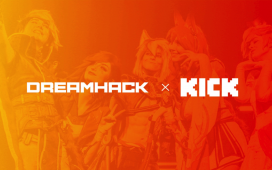When I attempted to predict the 2020 landscape of China’s esports industry in an opinion piece in January, I could not have imagined that a global pandemic would hit the world. It turned out that this was the actual biggest storyline of 2020, and not just for the country’s esports industry.
On Jan. 20, I sent a message to my colleagues at The Esports Observer: “There is an infectious disease in China.” It’s been three months since that initial message, and the disease, now called novel coronavirus (COVID-19), has put us through plenty of tough measures and a range of emotions.
Today, Wuhan, where the virus is believed to have originated, has ended a 76-day-long lockdown, and the country has largely brought COVID-19 under control with a decrease in new cases.
Over the past three months, the global esports economy has fallen sharply, with the pandemic having led to the suspension and cancelation of virtually all in-person esports tournaments. According to the Shanghai Esports Association, Shanghai has canceled more than 500 esports offline events in the first half of 2020, resulting in ¥1B RMB ($141M USD) in estimated economic losses.
China was the first national esports scene that has dealt with the negative impact of COVID-19. I believe that it’s vital to explain what kind of issues it has faced, how the different esports sectors responded, and what kind of experiences the Western esports industry could learn from China.
China’s Government Responds: We Will Fully Support the Development of Esports

With music, film, and traditional sports events all suspended, the Chinese government sees the potential that the esports industry could achieve during this pandemic.
Back in early February, Lei Zhao, Vice Minister of the Propaganda Department of Beijing Municipality Committee, announced that the city would host the “Esports Beijing 2020” series of events, in order to help the esports industry grow. The government will also partner with Tencent to co-host the Honor of Kings World Champion Cup Grand Final.
Normally, esports initiatives such as these are announced by a game publisher or tournament organizer. In this case, the plan was announced by the Beijing government itself during an official press conference, one which was mainly focused on strategies to combat the COVID-19 pandemic.
This could be regarded as a positive message from the capital city of China, with Shanghai and Guangzhou both announcing their supportive esports plans with the same level of grandeur; Shanghai pledged full support for the League of Legends World Championship later this year, while Guangzhou detailed a “Five 1s” city esports goal.
In the Chinese esports ecosystem, the government is normally regarded as an invisible entity, one ranked higher than game publishers. In this case, the relationship between the government and the esports industry becomes interdependent, as the authorities look for positive messages to inspire more confidence. The government knows esports could become the “only sport” for the foreseeable future, one of the few forms of mass entertainment for Chinese people in 2020.
Song Lin, Co-CEO of TJ Sports: We Have to Make New Regulations and Technical Proposals for Online LPL

In China, the League of Legends Pro League (LPL) is arguably the most valuable commercial esports tournament, with sponsorship deals with global brands such as KFC, Mercedes-Benz, and Nike. Song Lin, the head of Riot Games China, and Co-CEO of TJ Sports, explained to Shanghai News the actions taken to get the LPL up and running during the COVID-19 pandemic.
“We actually realized the coronavirus would become a serious issue in early February, and tried to run the LPL remotely online,” Song told Shanghai News. “We had never done this before, so we spent two weeks discussing the strategies with our inner technology group, as well as the LPL teams. Eventually, we proved this strategy can work.”
In fact, before LPL resumed competition through remote-online play, TJ Sports announced that the company would stream the LPL team-scrim competitions on the official channel of the league.
As Song said in the interview, none of the tournament organizers had a plan to deal with a global pandemic. Directly remote LPL online without careful considerations might lead to a number of issues, and could have potentially affected sponsor value. Broadcasting the LPL team-scrim could be regarded as a “pressure test” or preparation for the official online LPL competitions.
Eventually, in the online LPL, teams played from their own city bases where they might be thousands of miles apart. The online LPL would not feature the player’s live image on the screen.
It is actually a controversial operation. On the one hand, it’s necessary to maintain a stable online environment, otherwise, the additional bandwidth usage might impact the internet capacity of a team’s base, and potentially cause network latency issues.
It should be noted that in highly competitive esports, a tiny bit of network latency could heavily influence players’ performances. In addition, a lack of live images and referee supervision on-site could lead to fairness issues, as it is the basic standard for any traditional sport and esports event.
TJ Sports also takes this challenge seriously. “Due to many LPL teams not being based in Shanghai, we need to send our referees to the team’s city,” said Song. “The dispatch also needed to be done before 14 days, as we all followed China’s 14-day quarantine policy.”
Ultimately, there were still health and safety risks in dispatching referees. Fortunately, TJ Sports put health and safety as the top priority of concerns, and no one got infected with COVID-19.
In Western countries, especially those in Europe as part of the League of Legends European Championship (LEC), it would be tougher to send referees to different countries. While most European Union members normally enjoy travel without passport controls, however, during the pandemic virtually all borders have been closed.

After the LPL officially restarted play on March 9, TJ Sports also updated its new regulations and intensified punishment for match-fixing. As The Esports Observer reported in a weekly China Recap, TJ Sports fined LPL team Rogue Warriors ¥3M ($420K) due to its former player Wang “Weiyan” Xiang being involved in a match-fixing incident. Wang was also given a 24-month global ban.
The League of Legends World Championship Shanghai will be one of the biggest esports tournaments in 2020, and arguably the largest in the industry’s history. Song claimed that TJ Sports is still preparing for it. Speaking about how this pandemic is going to influence LPL in the long-run, most media outlets believe esports will be fully online for a long time. However, Song shared a different opinion: He believes that events like LPL would return to offline play and to generating revenue through things like ticket sales, on-site merchandise sales, and other things related to in-person fan engagement at esports venues.
Compared with traditional sports or other entertainment industries, esports has the advantage to put itself on the internet and continue running, even at its most basic. But the esports ecosystem is also young and fragile. Top tournament organizers such as TJ Sports and esports titles like League of Legends could find an online strategy to cut the loss of negative impact.
But what about other important sectors in the esports ecosystem, such as the third-party tournament organizers, tournament suppliers, and other esports SMEs? Stay tuned for part two of this article which details the challenges these organizations have faced in China during the COVID-19 pandemic.















